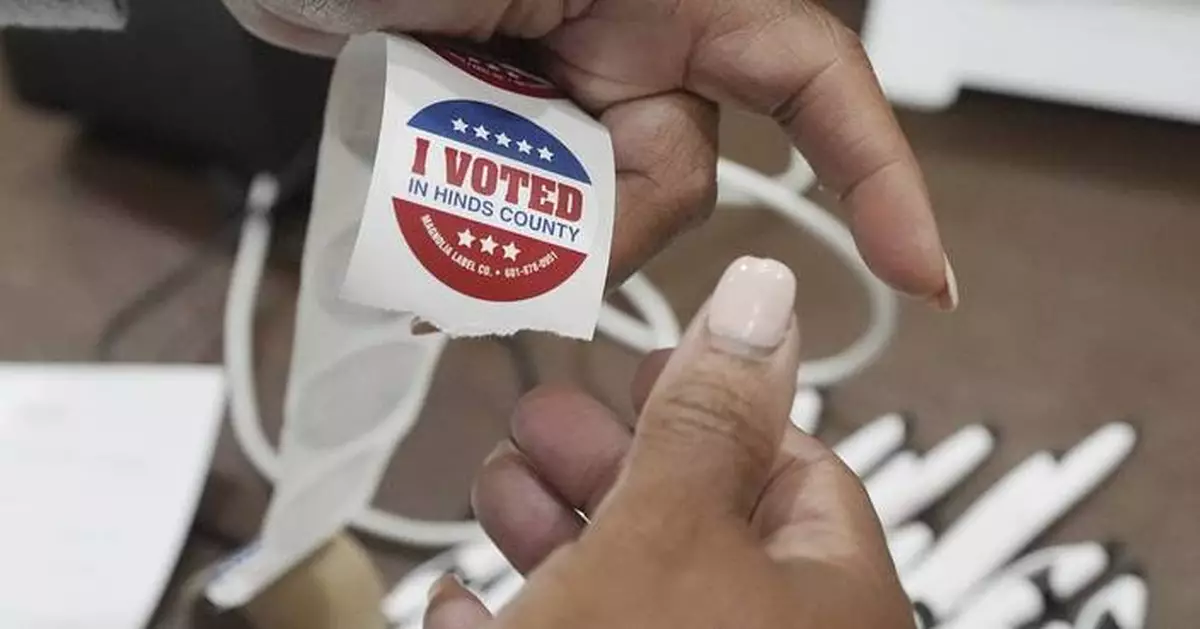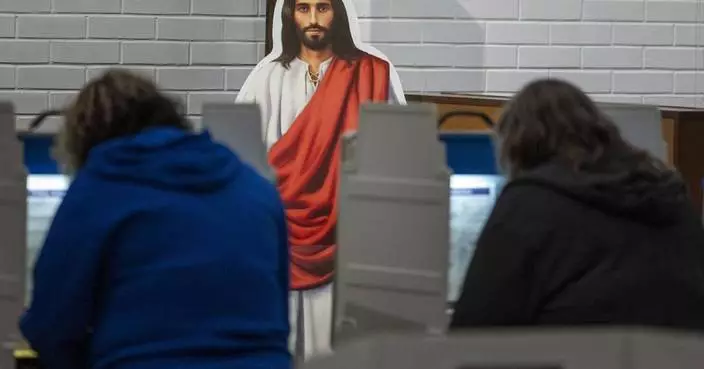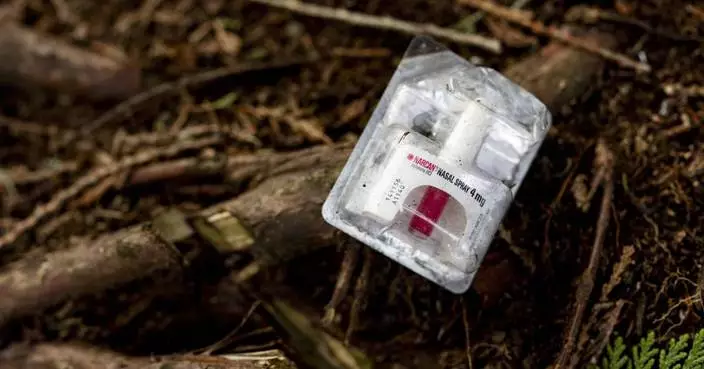JACKSON, Miss. (AP) — A federal appeals court panel incorrectly interpreted federal and state laws when it ruled that Mississippi cannot count mail-in ballots that are cast and postmarked by Election Day but arrive a few days later, two groups argue as they seek a new hearing.
Attorneys for Vet Voice Foundation and Mississippi Alliance for Retired Americans are asking the entire 5th U.S. Circuit Court of Appeals to reconsider the ruling that a portion of the court issued Oct. 25.
The ruling did not affect the counting of ballots for the Nov. 5 election because the three-judge panel noted that federal court precedents discourage court actions that change established procedures shortly before an election.
However, the case could affect voting across the U.S. if the Supreme Court ultimately issues a ruling.
The attorneys for Vet Voice Foundation and the Mississippi Alliance for Retired Americans argue in court papers filed Friday that the panel of judges “incorrectly suggested that post-election day ballot receipt deadlines are a recent invention.”
“In fact, the practice of counting ballots cast by election day but received afterward goes back to the Civil War, when many states permitted soldiers to vote in the field before sending their ballots to soldiers’ home precincts," attorneys for the two groups wrote.
Many states have laws that allow counting of ballots that are cast by Election Day but received later, the attorneys wrote.
“Far from making any attempt to preempt these laws, Congress has acknowledged and approved of them for more than five decades,” they wrote.
The three-judge panel of the conservative appeals court reversed a July decision by U.S. District Judge Louis Guirola Jr., who had dismissed challenges to Mississippi’s election law by the Republican National Committee, the Libertarian Party of Mississippi and others.
Richard Hasen, a professor at the University of California, Los Angeles School of Law, wrote on his election law blog that the ruling by the appeals court panel was a “bonkers opinion” and noted that “every other court to face these cases has rejected this argument.”
Republicans filed more than 100 lawsuits challenging various aspects of vote-casting after being chastised repeatedly by judges in 2020 for bringing complaints about how the election was run only after votes were tallied.
The list of states that allow mailed ballots to be counted if they are postmarked by Election Day includes swing states such as Nevada and states such as Colorado, Oregon and Utah that rely heavily on mail voting.
In July, a federal judge dismissed a similar lawsuit over counting mailed ballots in Nevada. The Republican National Committee has asked the 9th Circuit Court of Appeals to revive that case.
Guirola wrote that Mississippi’s law does not conflict with federal election laws. The suit challenging the Mississippi law argued that the state improperly extends the federal election and that, as a result, “timely, valid ballots are diluted by untimely, invalid ballots.”
Guirola disagreed, writing that “no ‘final selection’ is made after the federal election day under Mississippi’s law. All that occurs after election day is the delivery and counting of ballots cast on or before election day.”
Although the Mississippi challenge was led by Republicans and Libertarians, there is bipartisan support for the state's practice. Mississippi Attorney General Lynn Fitch is defending the state’s top election official, Secretary of State Michael Watson, in the lawsuit. Both are Republicans.
Associated Press reporters Kevin McGill in New Orleans and Mark Sherman in Washington contributed to this report.
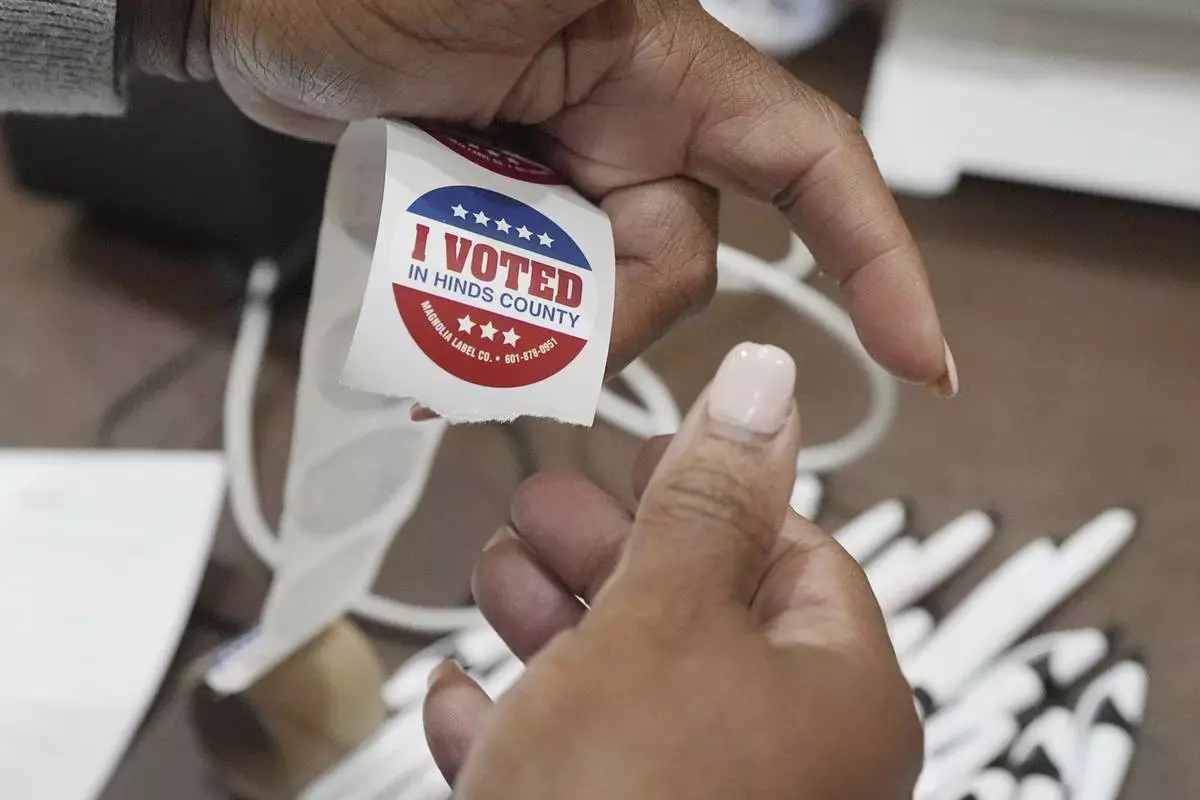
A precinct worker precuts "I Voted" stickers from a long roll prior to the site opening up for voters Tuesday, Nov. 5, 2024, in Jackson, Miss. (AP Rogelio V. Solis)
Hours after Donald Trump was elected president for the second time, Dr. Clayton Alfonso had two messages from patients seeking to replace their IUDs. Over the next few days, three women inquired about getting their tubes tied.
All of them said the election was the reason they were making these choices now.
Requests for long-term birth control and permanent sterilizations have surged across the nation since the election, doctors told The Associated Press. And companies that sell emergency contraception and abortion pills say they're seeing significant spikes in requests from people who are stockpiling the medications — one saw a 966% increase in sales of emergency contraception from the week before in the 60 hours after the election.
“I saw this bump after the Trump election in 2016" and after Roe vs. Wade was overturned in 2022, said Alfonso, an OB-GYN at Duke University in North Carolina. “But the patients seem more afraid this time.”
Although anti-abortion advocates are pressing Trump for more restrictions on abortion pills, it's unclear what — if much — will be done regarding access to contraceptives of any kind during the second Trump administration. Trump told a Pittsburgh television station in May that he was open to supporting regulations on contraception. But after media reports on the interview, he wrote on his social media platform Truth Social that he “has never and will never” advocate for restricting birth control and other contraceptives.
Alfonso said his patients want to replace still-effective IUDs and “restart” the 3-to-12-year clock on them before the inauguration. He also said the women are particularly concerned about IUDs, which have been attacked by abortion opponents who believe life begins when an egg is fertilized. Experts believe the devices work mostly by blocking fertilization, but also may make it harder for a fertilized egg to implant in the womb.
A patient who requested a tubal ligation Tuesday told Alfonso she doesn’t want kids and is “just absolutely terrified of either forced pregnancy or inability to access contraception."
Pittsburgh OB-GYN and abortion provider Dr. Grace Ferguson said more of her patients are scheduling IUD insertions or stockpiling emergency contraception, telling her upfront that it’s “because of the upcoming administration change.”
One patient, Mara Zupko, said she wants prescription emergency contraception since she’s on the cusp of the weight limit for Plan B, the most well-known over-the-counter type. Her husband is getting a vasectomy.
“We always kind of teetered on whether we wanted children or not,” said Zupko, 27. ”But as the world has become scarier and scarier, we realized we didn’t want to bring a child into that environment. And I also have several health risks.”
Women are also turning to companies that sell emergency contraception online or offer abortion pills mifepristone and misoprostol through telehealth — something that's been happening even before the election, but that some companies say has accelerated.
A study earlier this year showed the abortion pill supplier Aid Access received about 48,400 requests from across the U.S. for so-called “advance provision” pills from September 2021 through April 2023 — with requests highest right after news leaked about Roe being overturned but before the formal announcement. Other research found that more women had their tubes tied post-Roe, with the biggest increases in states that ban abortion.
Mifepristone has a shelf life of about five years and misoprostol around two years, according to Plan C, an organization that provides information about medical abortions. Plan B typically has a shelf life of four years.
Telehealth company Wisp saw orders for abortion pills spike 600% between Election Day and the following day. And between Nov. 6 and 11, the company saw a 460% increase in sales of its emergency contraception and birth control offerings.
At Gen Z-focused Winx Health, which sells emergency contraception called Restart, company leaders saw a 966% increase in sales in the 60 hours following the election compared with the week before. Sales of “value packs” of Restart — four doses instead of one — were up more than 7,000% in the past week.
"Morning after pills” are legal in all states, but Winx co-founder Cynthia Plotch said many people seem confused about what emergency contraception is compared to abortion pills. In a 2023 poll by the health policy research organization KFF, a majority of responders said they know these two things aren't the same, but only 27% reported knowing emergency contraceptive pills cannot end a pregnancy.
Doctors agree confusion around morning after pills may explain some of the stockpiling. But Alfonso at Duke suspects most people are doing this for the same reason they are seeking longer-term methods of birth control: to avoid abortion by preventing pregnancy in the first place.
Alfonso predicts the birth control and abortion pill surge may level out like it did in 2016 and 2022. If the new administration “is not focused on health care right away," he said, "then I think it’ll go to the back of people’s minds until it picks up in the media.”
The Associated Press Health and Science Department receives support from the Howard Hughes Medical Institute’s Science and Educational Media Group. The AP is solely responsible for all content.
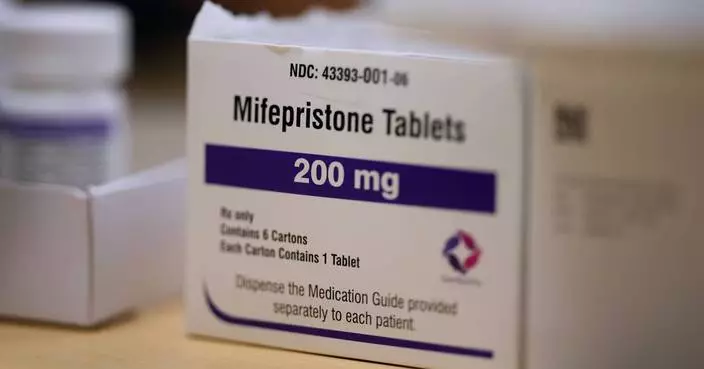
Birth control and abortion pill requests have surged since Trump won the election
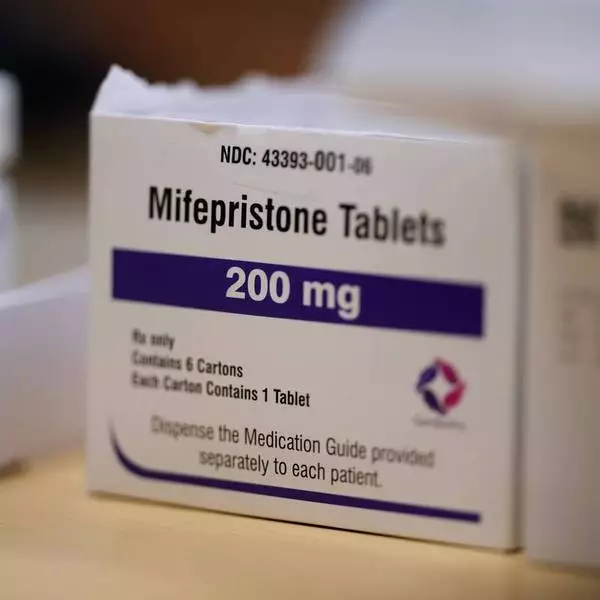
Birth control and abortion pill requests have surged since Trump won the election
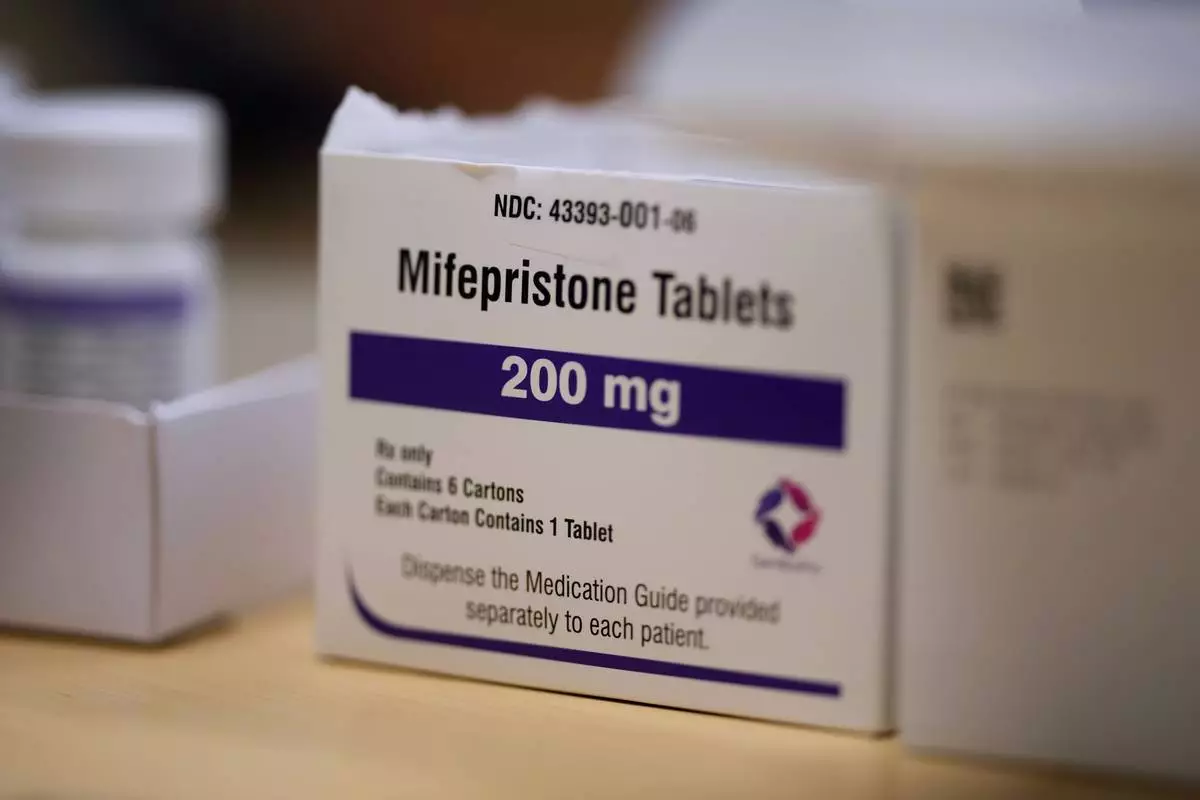
FILE - Mifepristone tablets are seen in a Planned Parenthood clinic July 18, 2024, in Ames, Iowa. (AP Photo/Charlie Neibergall, File)



